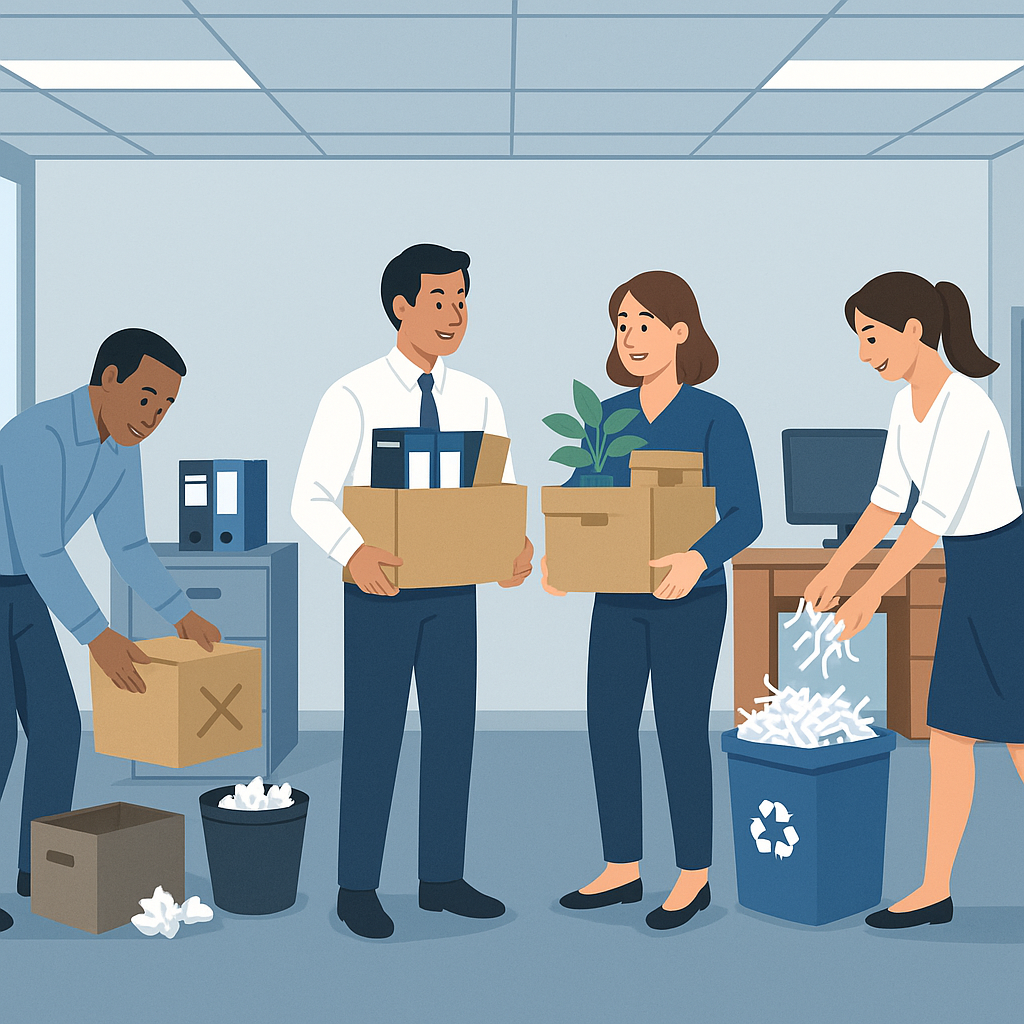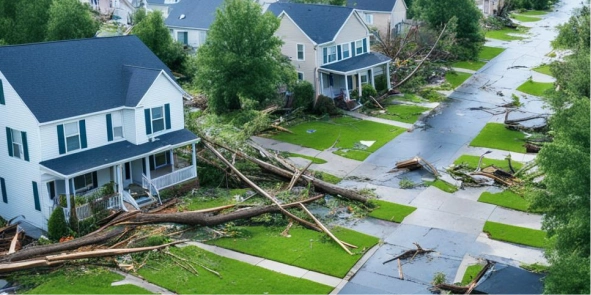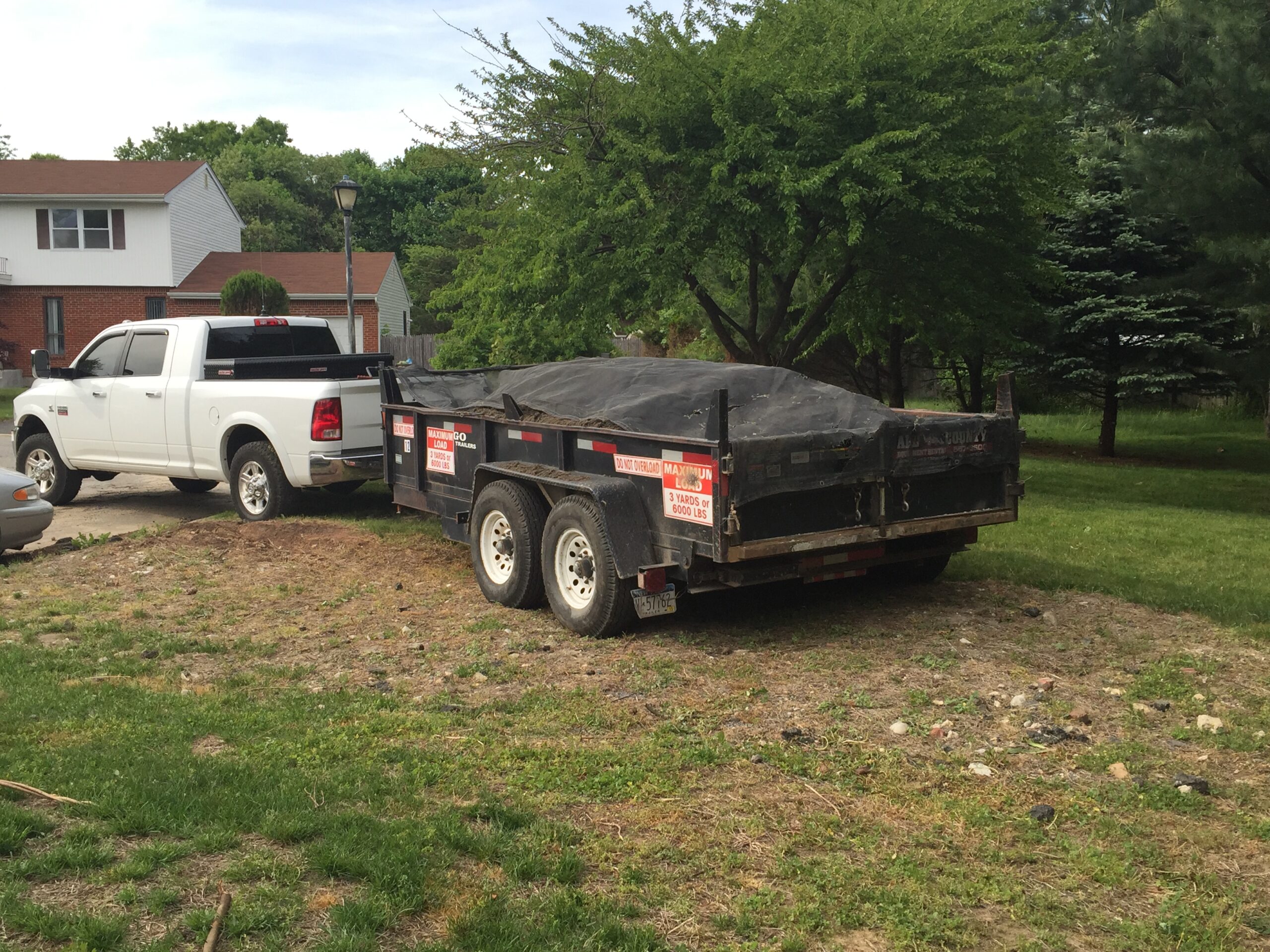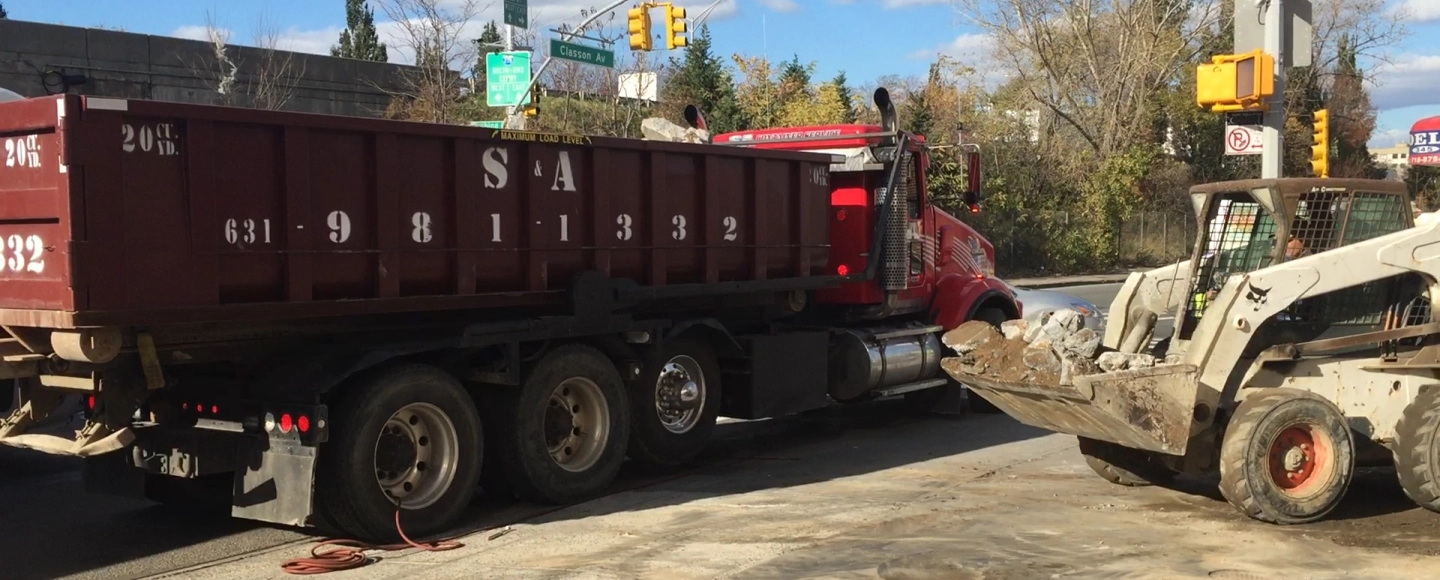Is your office starting to feel like a storage unit rather than a workspace? Whether you’re decluttering your office, moving offices, or just trying to breathe some life into a cluttered workspace, a major office cleanout can be a game-changer.
But let’s face it—tackling piles of paperwork, outdated office equipment, and figuring out what to do with old office furniture can feel overwhelming.
1. Start with a Plan
Before you start tossing everything into the nearest dumpster, take a moment to plan your cleanout. Make a list of what needs to go: broken chairs, unused office equipment, outdated electronics, piles of old documents, and so on. Categorize items into keep, donate, recycle, or trash.
Pro Tip: If you’re hiring a crew to load your rented dumpster from S&A Container Service, it’s best to have the dumpster delivered and placed on-site the day before work begins. This way, when your crew arrives ready to start, the dumpster is already in place—saving valuable time by avoiding any delays waiting for delivery.
2. Declutter in Phases
Trying to clean out an entire office in one day? Forget it—that’s a recipe for burnout. Instead, tackle one area at a time:
- Desks and cubicles
- Storage closets
- Kitchen areas
- Common spaces
This process will ensure you stay organized and avoid getting overwhelmed.
Related posts:
3. Know What to Do with Old Office Furniture
Wondering what to do with old office furniture? Don’t just leave it by the curb (especially here on Long Island, where some towns might fine you for improper disposal). Instead, consider:
- Donation: Many local nonprofits (like Habitat for Humanity ReStore) will gladly accept gently used desks, chairs, and shelves.
- Resale: Check with local office furniture resellers or even Facebook Marketplace for a quick sale.
- Professional hauling: Some waste management companies on Long Island specialize in bulk pickups and can handle large furniture responsibly.
4. Handle Office Equipment Properly
Outdated computers, printers, and phones—aka office equipment—need proper disposal, too. Electronic waste (e-waste) often requires special handling to comply with local regulations and protect the environment. Contact your local e-waste recycling center (Suffolk and Nassau Counties both have programs), or work with a certified recycling service that can handle secure data destruction.

5. Consider a Dumpster Rental for Big Jobs
If your office is really bursting at the seams, a dumpster rental can make a world of difference. Local Long Island companies can deliver the right-sized dumpster for your needs and even help with proper sorting of recyclables. It saves you time, multiple trips to the dump, and lets you focus on getting your office back in shape.
6. Why Dumpster Rentals Make Sense for Office Cleanouts
For major office cleanouts—especially in busy areas like Huntington, Garden City, or Ronkonkoma—a dumpster rental is a no-brainer. Here’s why:
- Convenience: Instead of making multiple trips to the landfill, you can toss everything into a single container, right on-site.
- Cost-effective: Renting a dumpster can be cheaper than paying per load or multiple small pickups.
- Flexibility: Whether you’re getting rid of office equipment, old desks, or general trash, you can choose the right size dumpster for your needs.
- Compliance: Local waste management companies on Long Island know the ins and outs of local disposal rules, which means you’ll stay compliant with local ordinances and avoid surprise fines.
Dumpster rentals are especially helpful during office moves or big remodels when you’re dealing with large volumes of trash and debris.
7. Schedule Regular Cleanouts
Once you’ve tackled your major cleanout, don’t let clutter creep back in. Schedule a quarterly or bi-annual office purge to keep your workspace efficient and inviting. Trust us—your team (and your stress levels) will thank you.
If you need help with an office clean out and are considering renting a dumpster, get in touch with S&A Contianer Service here.
TL;DR Summary
- Plan first: Make a plan and check local regulations.
- Declutter by area: Take it one zone at a time.
- Furniture options: Donate, resell, or haul away properly.
- Handle e-waste responsibly: Office equipment needs special disposal.
- Dumpster rentals: Makes big jobs easier, faster, and cheaper.



